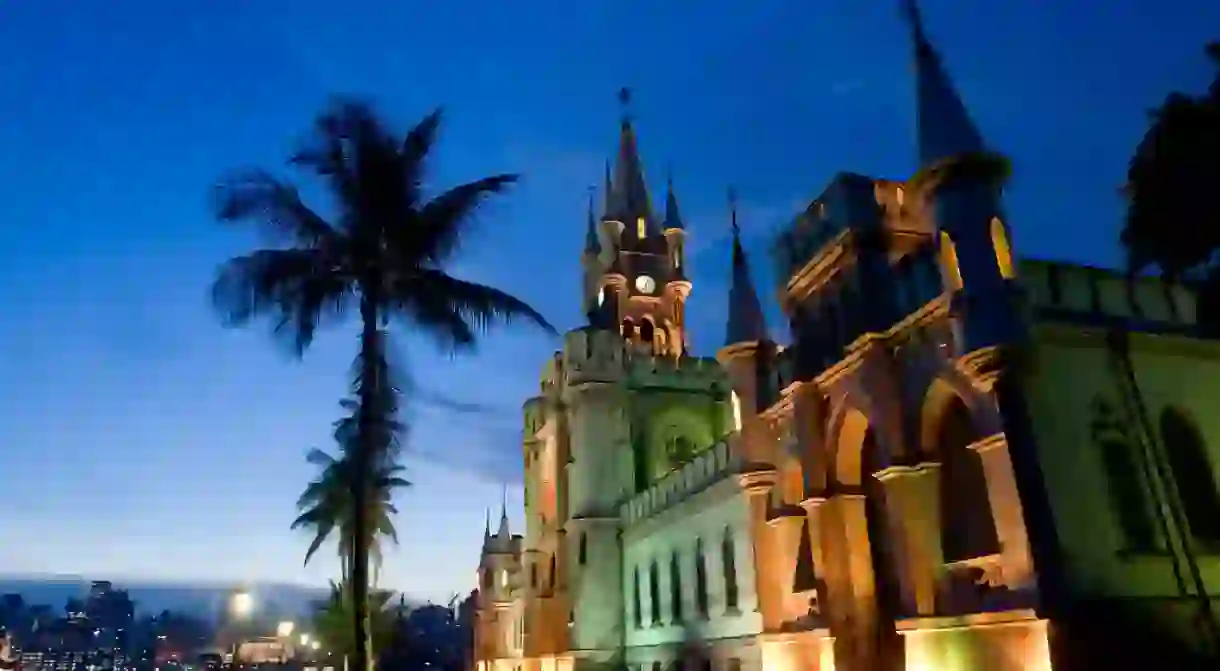The Most Impressive Buildings in Rio de Janeiro

Rio de Janeiro is famed for its natural beauty, yet it doesn’t fail to inspire on an architectural level too. The buildings reflect a complex and rich history that left its mark in various architectural forms. Culture Trip explores some of the city’s most impressive buildings.
Igreja de Nossa Senhora da Glória do Outeiro
Church, Park

Standing on the top of a small hill in Gloria, the Igreja de Nossa Senhora da Glória do Outeiro is a tiny church more commonly referred to as the Igreja da Gloria (The Church of Gloria). It dates back to 1739 and is one of Brazil’s best examples of national colonial architecture. As well as the pretty façade of the church, the views overlooking Flamengo Park and Guanabara Bay give another reason to go there.
The Royal Portuguese Reading Room
Library

The Royal Portuguese Reading Room defies its somewhat plain exterior by presenting a breathtaking neo-Manuelino design inside. Floor-to-ceiling bookcases overflow with the largest collection of Portuguese literature outside of Portugal, with approximately 350,000 volumes, with rare editions from the 16th and 17th centuries.
Museum of Tomorrow
Building, Museum

The Museum of Tomorrow is one of the highlights in Rio’s recently transformed port area. Spanish architect Santiago Calatrava, whose fondness for neo-futuristic styles is reflected in the buildings eye-catching enormous roof that juts out across the pier, designed the structure. The museum provides information about sustainability, climate change and future possibilities of our planet through a series of interactive and visual displays.
Niteroi Contemporary Art Museum
Building, Museum

One of Oscar Niemeyer’s finest works, the Niteroi Contemporary Art Museum attracts just as many visitors to see the exterior as it does those who want to go inside. The striking building, constructed in 1996, resembles a flying saucer with a curved concrete path winding around to the elevated entrance. A reflecting pool surrounds the base of the museum, adding another surrealist element.
Palace at Ilha Fiscal

The distinctive lime-green palace on Ilha Fiscal is remembered as hosting the final party of the empire in 1889 before Brazil was declared a republic. Today, the palace presents a fine example of the neo-Gothic style and is a cultural centre managed by the Brazilian navy.
Largo do Boticario

What was once a popular hangout spot among the elite, rich and famous, Largo do Boticario now stands abandoned. The six houses that make up Largo do Boticario surround a small square, and despite their decaying appearance, the neo-classical style and vibrant colours of the houses’ exteriors continue to remain impressive.
Palácio do Catete
Building, Museum

Built in 1858, the Palácio do Catete is one of the region’s most inspiring buildings, with its pink granite and marble façade and lavishly decorated interior replete with paintings, sculptures and marble finishings that date back to the 19th and 20th centuries.
Metropolitana Cathedral
Cathedral

Inspired by Mayan architecture, Edgar Fonseca designed this modernist cathedral, which resembles a huge grey beehive on the outside. Step inside to see the jaw-dropping stained-glass windows that stretch from the floor up to the roof. It lies in Centro, between metro Cinelandia and metro Carioca.













